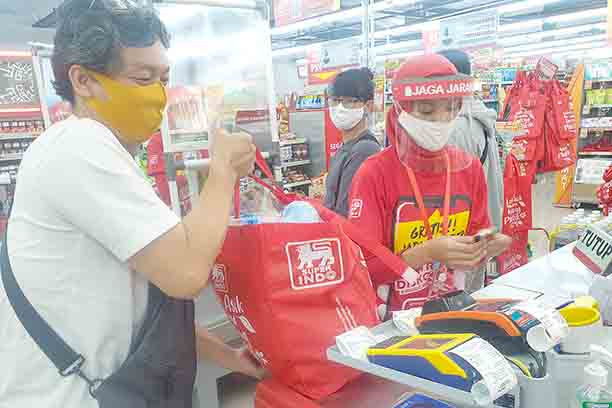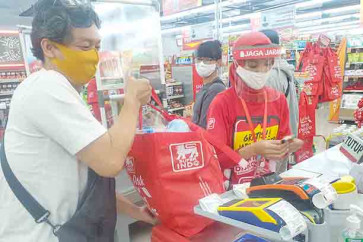Popular Reads
Top Results
Can't find what you're looking for?
View all search resultsPopular Reads
Top Results
Can't find what you're looking for?
View all search resultsPlastic industry gains from food deliveries, e-commerce, but long-term risks remain
Booming delivery services are compensating plastic packaging manufacturers for revenue lost due to the reduced use of plastic bags in supermarkets, according to the Indonesian Olefin, Aromatic and Plastic Industry Association.
Change text size
Gift Premium Articles
to Anyone
T
he plastic packaging industry is benefitting from delivery services, a market that has grown rapidly as consumers shop from home to reduce the risk of catching COVID-19.
Booming food and beverage delivery services are making up for the losses plastic packaging manufacturers had sustained as a result of the reduction in plastic bags used in supermarkets, according to Fajar Budiono, secretary-general of the Indonesian Olefin, Aromatic and Plastic Industry Association (Inaplas).
“At the start of the pandemic, and because of a ban on plastic [bags], there was a decline,” Fajar told The Jakarta Post in a phone interview on Monday. “But [demand] has now recovered in the new market of delivery services.”
With the pandemic compelling many people to stay at home, the gross merchandise value of the Indonesian food and delivery market is estimated to have risen by 183 percent to US$11.9 billion in 2020, Singapore-based tech consultancy firm Momentum Works said earlier this year. Indonesia is the largest market for such services in the region.
Read also: Indonesia’s $3.7b food delivery market largest in region
The plastic packaging industry has also benefited from an increased use of plastic bags at traditional markets, said Fajar, as some sellers had begun to put chilies in plastic bags of 50 grams or 100 grams to minimize contact with customers. Previously, sellers would usually let customers decide how much they wanted, weigh the chilies and then place them in a plastic bag.
The e-commerce boom, meanwhile, had led to an estimated increase between 10 and 20 percent in demand for plastic bubble wrap, Fajar added.


















